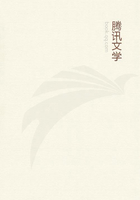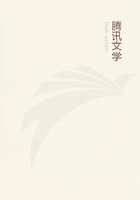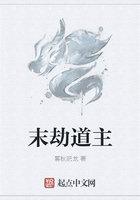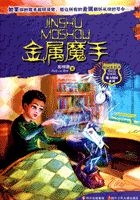Obviously language has produced a much greater variety of names for unpleasurable emotions than for pleasurable. In fact, observation renders it probable that unpleasurable emotions exhibit a greater variety of typical forms of occurence. and that their different forms are really more, numerous.
12. On the basis of the intensity of the feelings we may distinguish weak and strong emotions. These concepts, derived from the psychical properties of the feelings, do not coincide with those of sthenic and asthenic emotions, based upon the physical concomitants, for the relation of the psychological categories to the psycho-physical is dependent not only on the intensity of the feelings, but on their quality as well. Thus, weak and moderately strong pleasurable emotions are always sthenic, while, on the contrary, unplesurable emotions become asthenic after a longer duration, even when they are of a low degree of intensity, as, for example, care and anxiety. Finally, the strongest emotions, such as fright, worry, rage, and even excessive joy, are always asthenic. The discrimination of the psychical intensity of emotions is accordingly of subordinate significance, especially since emotions that agree in all other respects, may not only have different degrees of intensity at different times, but may on the same occasion vary from moment to moment. Then too since this variation from moment to moment is essentially determined by the sense-feelings that arise from the accompanying physical phenomena, in accordance with the principle of the intensification of emotions discussed above (p. 177), it is obvious that the originally physiological antithesis of sthenic and asthenic often has a more decisive influence even on the psychological character of the emotion than the primary psychical intensity itself. [p.
181]
13. The third distinguishing characteristic of emotions the form of occurence, is more important. Here we distinguish three classes.
First, there are sudden, irruptive emotions, such as surprise, astonishment, disappointment, fright, and rage. They all reach their maximum very rapidly and then gradually sink to a quiet affective state. Secondly, we have gradually arising emotions, such as anxiety, doubt, care, mournfulness, expectation, and in many, cases joy, anger, worry. These rise to their maximum gradually and sink in the same way. As a third form and at the same time a modification of the class just mentioned we have intermittent emotions, in which several, periods of rise and fall follow one another alternately. All emotions of long duration belong here. Thus, especially joy, anger, mournfulness, and the most various forms of gradually arising emotions, come in waves and often permit a distinction between periods of increasing and those of decreasing emotional intensity. The sudden, irruptive emotions, on the contrary, are seldom intermittent. This happens only in cases in which the emotion may also belong to the second class. Such emotions of a very changeable form of occurence [ sic ] are, for example, joy and anger. They may sometimes be sudden and irruptive. In this case, to be sure, anger generally becomes rage. Or they may gradually rise and fall; they are then generally of the intermittent type. In their psycho-physical concomitants, the sudden irruptive emotions are all asthenic, those gradually arising may be either sthenic or asthenic.
13a. The form of occurence [ sic ], then, however characteristic it may be in single cases, is just as little a fixed criterion for the Psychological classification of emotions as is the intensity of the feelings.
Obviously such a classification can be based only on the quality of the affective contents, while intensity and form of occurence may furnish the means of subdivision. The way [p. 182] in which these conditions are connected with one another and with the accompanying physical phenomena and through these with secondary sense-feelings, shows the emotions to be most highly composite psychical processes which are therefore in single cases exceedingly variable. A classification that is in any degree exhaustive must, therefore, subdivide such varying emotions as joy, anger, fear, and anxiety into their subforms, according to their modes of occurence, the intensity of their component feelings, and finally according to their physical concomitants which are dependent on both the psychical factors mentioned. Thus, for example, we may distinguish a strong, a weak, and a variable form of anger, a sudden, a gradually arising, and an intermittent form of its occurence, and finally a sthenic, asthenic, and a mixed form of its expressive movements.
For the psychological explanation, an account of the causal interconnection, of the single forms in each particular case is much more important than this mere classification. In giving such an accounts we have in the case of every emotion to do with two factors, first, the quality and intensity of the component feelings, and second, the rapidity of the succession of these feelings. The first factor determines the general character of the emotion, the second its intensity in part and more especially its form of occurence, while both together determine its physical accompaniments and the psycho-physical changes resulting from the sense-feelings connected with these accompanying phenomena (p. 177). It is for this very reason that the physical concomitants are as a rule to be called psycho-physical. The expressions "psychological" and "psycho-physical" should not, however, be regarded as absolute opposites in this case, where we have to do merely with symptoms of emotion. We speak of psychological emotional phenomena when we mean those that do not show any immediately perceptible physical symptoms, even when such symptoms can be demonstrated with exact apparatus (as, for example, changes in the pulse and in respiration). On the other hand we speak of psycho-physical phenomena in the case of those which can be immediately recognized as two-sided.


